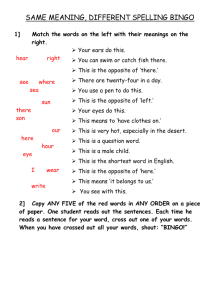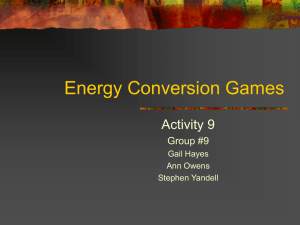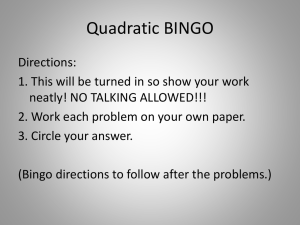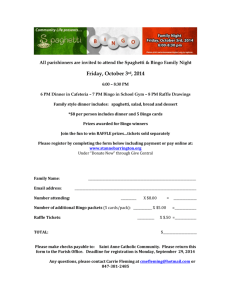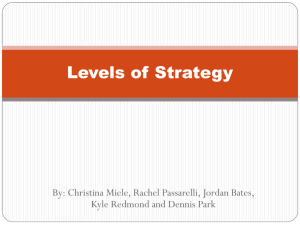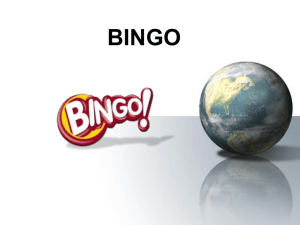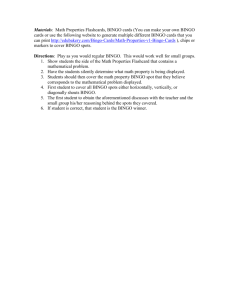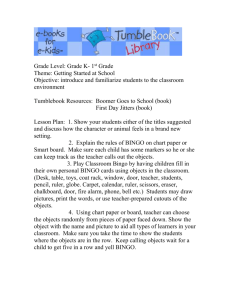Goods and Services
advertisement
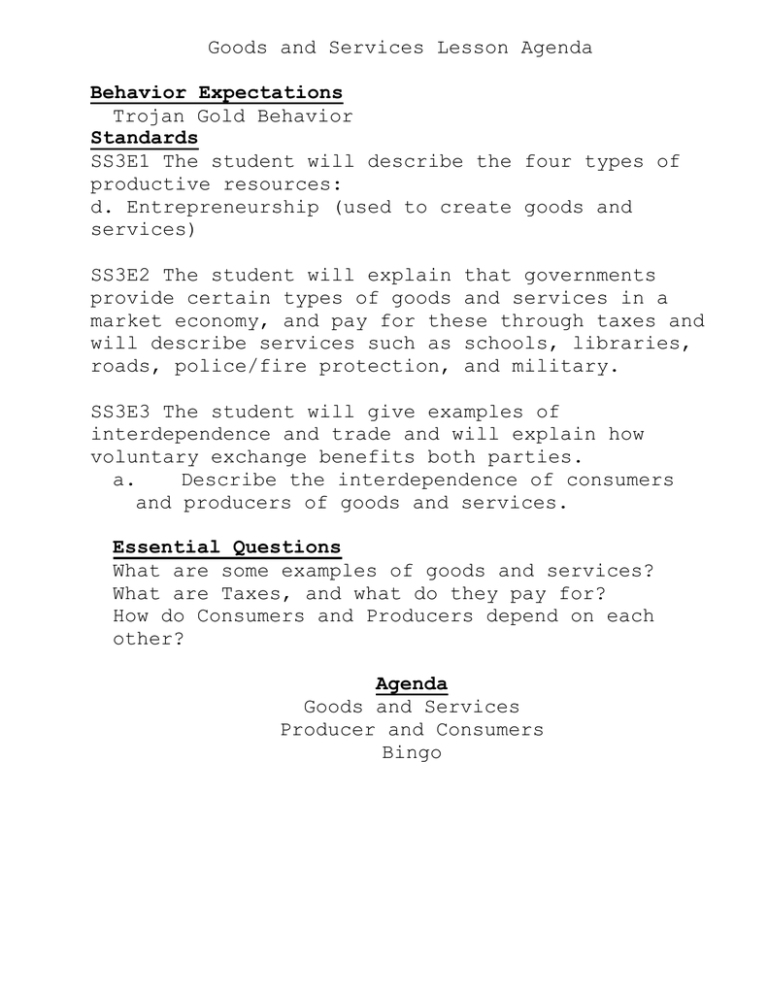
Goods and Services Lesson Agenda Behavior Expectations Trojan Gold Behavior Standards SS3E1 The student will describe the four types of productive resources: d. Entrepreneurship (used to create goods and services) SS3E2 The student will explain that governments provide certain types of goods and services in a market economy, and pay for these through taxes and will describe services such as schools, libraries, roads, police/fire protection, and military. SS3E3 The student will give examples of interdependence and trade and will explain how voluntary exchange benefits both parties. a. Describe the interdependence of consumers and producers of goods and services. Essential Questions What are some examples of goods and services? What are Taxes, and what do they pay for? How do Consumers and Producers depend on each other? Agenda Goods and Services Producer and Consumers Bingo LESSON PLAN NUMBER 6 Teacher Education Candidate Tara Harris School Carrollton Elementary Block No. 4 Supervising Teacher Mrs. Walker UWG Supervisor Mrs. Calhoun Date of Implemented Lesson Plan: March 23, 2011 Subject: Goods and Services Grade Level: 3rd Teaching Skills Focus for This Lesson: Instructional Clarity, Questioning and Responding to Students, Providing Feedback and Reinforcement Stage 1 The Desired Results Standards SS3E1 The student will describe the four types of productive resources: d. Entrepreneurship (used to create goods and services) SS3E2 The student will explain that governments provide certain types of goods and services in a market economy, and pay for these through taxes and will describe services such as schools, libraries, roads, police/fire protection, and military. SS3E3 The student will give examples of interdependence and trade and will explain how voluntary exchange benefits both parties. a. Describe the interdependence of consumers and producers of goods and services. Specific Learning Objective(s) Assessment Instrument (Ex. Test, Poster, Presentation, Picture, etc.) Evaluation (Grading) Instrument (Ex. Point System, Rubric, Checklist, etc.) Materials The students will be able to identify what a goods and services are, what taxes are used for, who provides services, and tell how consumers and producers depend on one another. Stage 2 Assessment Evidence Bingo Game Check list Stage 3 Learning Plans Goods and services power point, bingo cards, word bank of goods and services, card markers for bingo game Sequence of Teacher Actions *The teacher will call the students to the rug. *Attention-Getter/Motivator *Introduction lesson. *Tie to Previous Learning *Significant Actions to Introduce and Guide Lesson *The teacher will call the students to the rug. The teacher will go over the behavior expectations, essential questions, the standards and the agenda. The teacher will the go over the power point. During the power point, the teacher will ask the students to give examples of goods, services, consumers, producers, and how consumers and producers are dependent on one another. The teacher will then go back over the essential questions. The teacher will then tell the students that they are going to play a bingo game. The teacher will then go over the behavior expectations and explain the bingo game. The teacher will then lead the students in playing bingo. Sequence of Student Actions *Explain How Students Are Engaged During Lesson *The students are engaged in coming up with examples during the power point. The students are also engaged as they answer the essential questions. The students are engaged in the bingo activity * Explain How Students Discuss or Present Results of What They Did During the Lesson Teacher’s Lesson Closure/WrapUp/Transition Adaptations for Exceptional Students (Anyone who requires modifications for their needs) Related Activities/Extensions (What can students do who need more than is in the lesson? Should be related to lesson.) *The students will present if they understood the lesson in being able to recognize the goods and services in the bingo game. Connections to Other Disciplines reading *The teacher will go over the essential questions *The teacher will work one on one and re-teach or further explain the content if needed. *The students could create a poster of how consumers and producers are dependent on each other.
